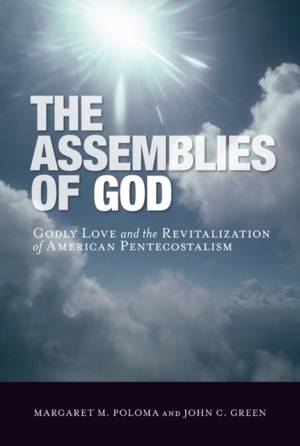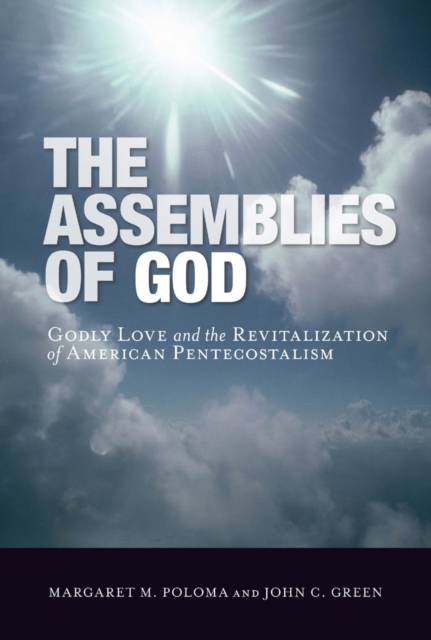
- Retrait gratuit dans votre magasin Club
- 7.000.000 titres dans notre catalogue
- Payer en toute sécurité
- Toujours un magasin près de chez vous
- Retrait gratuit dans votre magasin Club
- 7.000.0000 titres dans notre catalogue
- Payer en toute sécurité
- Toujours un magasin près de chez vous
The Assemblies of God
Godly Love and the Revitalization of American Pentecostalism
Margaret M Poloma, John C GreenDescription
The Assemblies of God (AG) is the ninth largest American and the world's largest Pentecostal denomination, with over 50 million followers worldwide. The AG embraces a worldview of miracles and mystery that makes"supernatural" experiences, such as speaking in tongues, healing, and prophecy, normal for Christian believers. Ever since it first organized in 1916, however, the "charismata" or "gifts of the Holy Spirit" have felt tension from institutional forces. Over the decades, vital charismatic experiences have been increasingly tamed by rituals, doctrine, and denominational structure. Yet the path towards institutionalization has not been clear-cut. New revivals and direct personal experience of God--the hallmarks of Pentecostalism--continue as an important part of the AG tradition, particularly in the growing number of ethnic congregations in the United States.
The Assemblies of God draws on fresh, up-to-date research including quantitative surveys and interviews from twenty-two diverse Assemblies of God congregations to offer a new sociological portrait of the AG for the new millennium. The authors suggest that there is indeed a potential revitalization of the movement in the works within the context of the larger global Pentecostal upswing, and that this revitalization may be spurred by what the authors call "godly love: " the dynamic interaction between divine and human love that enlivens and expands benevolence.
The volume provides a wealth of data about how the second-largest American Pentecostal denomination sees itself today, and suggests trends to illuminate where it is headed in the future.
Spécifications
Parties prenantes
- Auteur(s) :
- Editeur:
Contenu
- Nombre de pages :
- 268
- Langue:
- Anglais
Caractéristiques
- EAN:
- 9780814767832
- Date de parution :
- 23-11-10
- Format:
- Livre relié
- Format numérique:
- Genaaid
- Dimensions :
- 161 mm x 231 mm
- Poids :
- 489 g

Les avis
Nous publions uniquement les avis qui respectent les conditions requises. Consultez nos conditions pour les avis.






